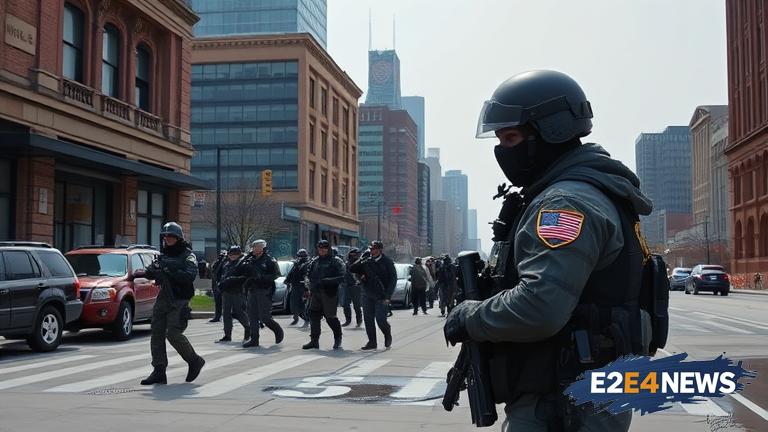The city of Chicago has been plagued by soaring crime rates, with violent crimes such as homicides and shootings on the rise. In response, a resident has called for the deployment of the National Guard to help combat the issue. The resident, who wishes to remain anonymous, believes that the city’s law enforcement agencies are overwhelmed and unable to effectively address the problem. The call for National Guard intervention has sparked a debate about the role of federal intervention in local law enforcement, with some arguing that it is necessary to restore order and others claiming that it is an overreach of federal authority. The issue has also drawn attention from presidential candidate Donald Trump, who has weighed in on the matter, criticizing the city’s leadership for failing to address the crime problem. Illinois Governor JB Pritzker has also been criticized for his handling of the situation, with some arguing that he has not done enough to support law enforcement efforts. Meanwhile, Chicago Mayor Brandon Johnson has faced scrutiny for his approach to addressing crime, which some have characterized as too soft on criminals. The resident’s call for National Guard intervention has highlighted the need for a comprehensive solution to the city’s crime problem, which will require cooperation and coordination between local, state, and federal authorities. The issue is complex and multifaceted, involving not only law enforcement but also social and economic factors that contribute to crime. To effectively address the problem, it will be necessary to develop a strategy that takes into account the root causes of crime and provides support for at-risk communities. This could include initiatives such as job training programs, mentorship initiatives, and community outreach efforts. Additionally, law enforcement agencies will need to work together to share intelligence and best practices, and to develop effective strategies for addressing specific types of crime. The use of technology, such as surveillance cameras and data analytics, could also play a key role in helping to prevent and investigate crimes. Furthermore, it will be important to ensure that law enforcement agencies are adequately funded and resourced, and that officers are provided with the training and support they need to effectively do their jobs. The city’s leadership will also need to work to rebuild trust between law enforcement and the communities they serve, which has been eroded in recent years. This could involve initiatives such as community policing programs, which focus on building relationships and trust between officers and the public. Ultimately, addressing the crime problem in Chicago will require a sustained and collective effort from all stakeholders, including law enforcement, community leaders, and government officials. It will also require a willingness to think creatively and develop innovative solutions to the complex challenges facing the city. By working together and taking a comprehensive approach, it may be possible to reduce crime rates and make Chicago a safer and more prosperous place for all residents. The situation in Chicago is a microcosm of the broader national debate about crime and law enforcement, and the city’s experience could provide valuable lessons for other cities and states facing similar challenges. As the debate over National Guard intervention continues, it is clear that there are no easy answers, but rather a complex set of issues that will require careful consideration and thoughtful solutions. The resident’s call for National Guard intervention has highlighted the need for urgent action to address the city’s crime problem, and it is likely that the issue will continue to be a major topic of discussion in the coming weeks and months. In the meantime, the city’s residents will continue to live with the reality of rising crime rates, and the need for effective solutions will only continue to grow. The city’s leadership must work to develop a comprehensive strategy for addressing crime, one that takes into account the complex factors that contribute to the problem and provides support for at-risk communities. Only through a sustained and collective effort can the city hope to reduce crime rates and make Chicago a safer and more prosperous place for all residents.
